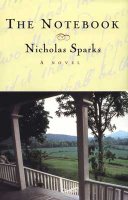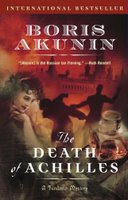
In the Tennessee Country: A Novel
Jesus said to them, "A prophet is not without honor, except in his own country, and among his own relatives, and in his own household." (Matthew 13:57 and Mark 6:4)
“In the Tennessee country of my forebears, it was not uncommon for a man of good character suddenly to disappear. He might be a young man or a middle-aged man or even sometimes a very old man. Whatever the case, few questions were ever asked. Rather, it was generally assumed that such a man had very likely felt the urging of some inner compulsion and so could not do otherwise than gather up his chattels and move on to resettle himself elsewhere.”
The words of Jesus remind us of a truism in life, well known for thousands of years, the process of “moving away” in order to “find” oneself, one’s true identify in life. Many people must “move away” from the place of their upbringing and their families in order to find their own place in life. In many instances, people can find their own place in life only a short distance from their home places, retaining strong ties to their families. In other instances, people find that they must sever their ties to their families, at least for some period of time, in order to find their own place in life, the place in which they can feel comfortable and grow in life. In some instances, people find their own place in life by establishing a career that is very different from that demanded by their families; in other instances, people find that they must become different people completely from the person they had been. This internal urge to “move away” to “find oneself” is intensely powerful.
In this book, the author describes the effects of the “moving away” process on three men – his cousin Augustus, himself, and his youngest son. All of these people disappeared from their own immediate families to one extent or another in order to find their own places in life. To achieve the “honor” that they needed to feel for themselves. To find the deep happiness that comes from having found one’s true identity. This drive to find inner happiness is very powerful, the inner happiness that can come only from finding oneself, the self that one feels is real, rather than that imposed by family and friends.
In this book, the author describes the “moving away” of three men, but he does not identify the “moving away” process, the deep need for self-identification and self-fulfillment. Indeed, he seems to have no clue about this phenomenon that is so widely known. He describes the process for these men as if it were some mysterious process common only to men of his own area in Tennessee. As a result, he writes what must be one of the most boring books ever published without the thought ever dawning on his mind that these men were not “disappearing” from life, but “finding” life. And the possibility never occurs to him that perhaps the Holy Spirit guides people along the path to self-identification and self-awareness, rather than their simply dropping out of life and disappearing. As a result, he writes a book that is utterly useless and utterly boring, when it could have been so much deeper, so much more enlightening, so much more interesting. What a waste, and what a shame.





